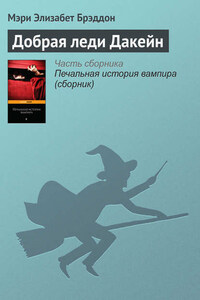CHAPTER I.
IN A CORNISH VALLEY
There are some travellers who think when they cross the Tamar, over that fairy bridge of Brunel's, hung aloft between the blue of the river and the blue of the sky, that they have left England behind them on the eastern shore – that they have entered a new country, almost a new world. This land of quiet woods and lonely valleys, and bold brown hills, barren, solitary – these wild commons and large moorlands of Cornwall seem to stand apart, as they did in the days gone by, when this province was verily a kingdom, complete in itself, and owning no sovereignty but its own.
It is a beautiful region which the traveller sees, perchance for the first time, as the train skims athwart the quaint little waterside village of Saltash, and pierces the rich depths of the woodland, various, enchanting. Now the line seems strung like a thread of iron in mid-air above a deep gorge, now winds sinuous as a snake through a labyrinth of hills. A picturesque bit of road, this between Plymouth and Bodmin Road, at all times; but, perhaps, loveliest in the still evening hour, when the summer sunset steeps the land in golden light, while the summer wind scarcely stirs the woods.
In the mellow light of a July eventide the express from Paddington swept with slackened speed round the curve which marked the approach to a viaduct between Saltash and Bodmin Road – a heavy wooden structure, spanning a vale of Alpine beauty. An exquisite little bit of scenery, upon which the stranger is apt to look with some touch of fear mingled in the cup of his delight: but to the dweller in the district, familiar with every yard of the journey, the transit is as nothing. He is carried through the air serenely, as he smokes his cigar and reads his paper, and the notion of peril never occurs to him.
One man, sitting by the window of a third-class carriage near the end of the train, looked out at the familiar scene dreamily to-night. He was an elderly, gray-headed man, a parish doctor, hard-worked and poorly paid; but he had a keen eye for the beautiful in Nature, dead or living, and familiar as this spot was to his eye, it always impressed him. He sat with his face to the engine, puffing lazily at his black briarwood, and gazing at the landscape, in that not unpleasant condition of bodily and mental fatigue, when the mind seems half asleep, and the external world is little more than a dream-picture.
The train was not a long one, a good many of the London coaches having been left behind at Plymouth. Dr. Menheniot put out his head, and surveyed the line of carriages as they rounded the curve. There was a figure here and there by a window; but the train seemed sparsely occupied. They were nearing the viaduct. That narrow thread of water trickling over its rocky bed in the depth of the gorge was in winter a rushing torrent. The line at this point was under repair, and the wooden palisade had been removed in the progress of the work. The actual danger was in nowise increased by the absence of this barrier, which would have crumbled like matchwood before the weight of the train, had the engine run off the rails – but there was a seeming insecurity to the eye of the traveller as he looked into the gulf below; and Dr. Menheniot gave an involuntary shudder. Another moment and the engine came on the viaduct. Menheniot started up with a half-articulate exclamation, "What, in God's name – " he began.
He opened the carriage-door, seemed as if he were going to clamber out, to try and make his way along the footboard to a distant carriage, outside which a girl was standing, holding on to the brass hand-rail at the side of the door. She had that instant stepped out, or been thrust out; Menheniot knew not which. He had seen nothing till he saw her standing there, a slender figure in a light-coloured gown, thin draperies fluttering in the wind – standing there, hanging between life and death, a creature to be rescued somehow, were it at the hazard of a man's life.
Before he could put himself in peril the chance of rescue was over. A wild shriek rang through the wood – a fluttering form went whirling down the ravine, flashing white athwart the sunlit greenery, and lay half buried amidst a tangle of ferns and wild flowers at the bottom of the gorge.
Twenty or thirty heads were thrust out of the windows. The train, which to Dr. Menheniot's eye just now had seemed almost empty, was now alive with people. The engine slackened speed, and stopped at about a hundred yards from the scene of the catastrophe. A dozen men of different ages and qualities leaped out of the train and clambered down the embankment; among others Julian Wyllard, the Lord of the Manor of Penmorval – a man of middle age, soberly attired, a tall stately figure, a man of mark in this part of the country – before whom all gave way; except little Dr. Menheniot, who hurried on ahead, intent upon affording professional help, if such help could avail.
Julian Wyllard had been an athlete in his boyhood and youth. He walked down the steep, rugged hillside more easily than many men walk down Regent Street. At the bottom of the embankment every one fell back involuntarily, as it were, and allowed Mr. Wyllard to head the procession. They went as fast as it was possible to go over that broken ground, trampling down the ferns and flowers, the tiny scarlet strawberries, and crimson and orange fungi, as they went, every lip breathless, every eye strained towards that one spot in the hollow yonder where the doctor was hastening.














